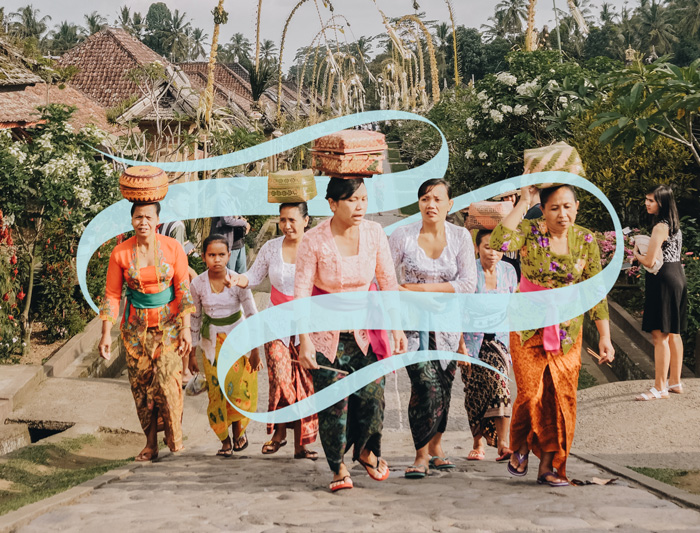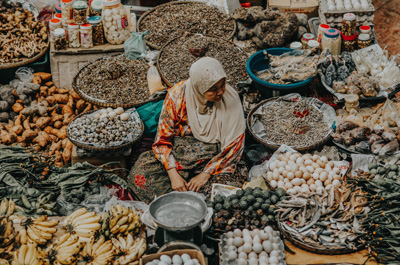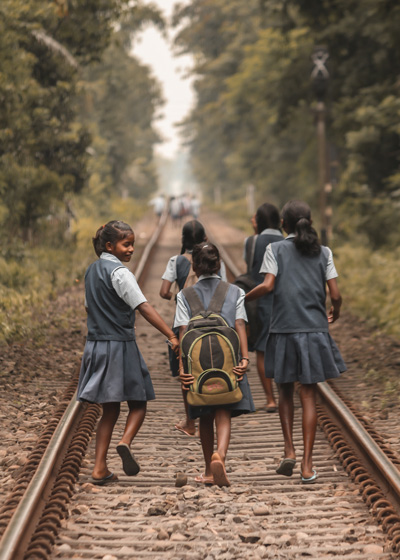Thinking About the Summit of the Future: Shaping its Agenda— Part II: Global Environmental Governance and Gender Equality
by Arthur Lyon Dahl and Amanda Ellis
May 12, 2023

by Arthur Lyon Dahl and Amanda Ellis
May 12, 2023

On April 24 the Global Governance Forum published the first of a series of articles which will address many of the issues raised in the recently published report “A Breakthrough for People and Planet: Effective and Inclusive Global Governance for Today and the Future,” by the High-Level Advisory Board on Effective Multilateralism (HLAB) appointed by the UN Secretary General. That first article focused on the themes of poverty, inequality and global finance. The focus of this article shifts to global environmental governance and gender equality, touching upon themes which occupied center stage in the HLAB report.
Despite a half century of efforts, global environmental governance is largely voluntary and therefore ineffective. The High Level Advisory Board has noted that the triple planetary crisis is accelerating and intensifying, with climate change, biodiversity loss and pollution now an existential crisis with grave risks to global stability and security. Environmental changes are likely to plunge millions into food insecurity, exacerbating and multiplying global famines. We are approaching irreversible tipping points in our global ecosystem. Without a radical change in our relationship with the planet, our collective future is at risk. The good news is that we have the solutions and the cost of transition is less than the cost of further dangerous delays.
The climate crisis is far more than an environmental challenge; it poses a security risk to every aspect of our lives through extreme heat, drought, flooding, crop failure, water shortages, desertification, disease, food insecurity, famine, forced migration, threats to critical social and physical infrastructure, and unprecedented disruptions. These disproportionately affect regions and countries that are the least responsible for greenhouse gas emissions and environmental degradation, many of which are also suffering from conflict, fragility, violence, and other forms of instability, with the poorest and least able to respond as primary victims. Yet all will be affected – estimates of climate refugees displaced by the climate crisis could be as high as 2 billion by 2100 without urgent action now.
This has created an inequitable burden for women in particular, exacerbating existing disparities in a world already beset by inequalities. Women and Indigenous and local peoples are pivotal agents of global environmental change, playing a significant role in securing food supplies, mitigating the effects of climate change, and safeguarding biodiversity. This should result in specific opportunities for women to engage in decision-making, policymaking, and access to finance for a just and sustainable transition to a circular economy.

For an equitable, green transition, the HLAB recognises that countries and communities who have benefited most from decades of planetary exploitation have a special role based on common but differentiated responsibilities. It calls for a pact for people and planet with commitments to net-zero carbon emissions, a phase out of fossil fuels, universal provision of energy, zero deforestation, biodiversity targets respecting indigenous peoples, nature regeneration, and a pollution-free planet, supported by a system of accountability. It proposes to equitably distribute clean energy, and to price and regulate carbon. In addition, it is necessary to phase out energy subsidies which, according to a recent IMF study, amount to some $5.9 trillion (about 6.8 percent of world GDP). These fossil fuel subsidies, including undercharging for environmental costs and foregone consumption taxes, worsen income inequality and contribute to accelerating climate change. Incentives must align with outcomes that privilege global human security, not special interest groups. This will require global governance beyond states to cover multinational corporations, other economic entities and individuals. In a world of constrained resources and shrinking fiscal spaces, we must prioritize resources to buttress human security for our global village.
We must regain balance with nature and with one another, treating ecosystems as a primary asset for securing our collective well-being
The HLAB calls a healthy planet a global public good, requiring a networked and inclusive governance system to protect it and remain within its boundaries sustainably, ensuring equitable access to resources and regeneration of damaged ecosystems and biogeochemical cycles. We must regain balance with nature and with one another, treating ecosystems as a primary asset for securing the collective well-being of all life on our planet. A circular economy that delivers for all is the only pathway to achieving the SDGs, global security and prosperity, based on the recognition of the human right to a clean, healthy, and sustainable environment. This signals the interconnectedness of the well-being of people and a healthy planet, acting in trusteeship for future generations.
Given the central importance of the environment to all aspects of our lives and collective well-being, the HLAB calls for an elevation of the environment within our global governance system. This requires strengthening the United Nations Environment Programme (UNEP) and the UN Environment Assembly (UNEA) with mandates and resources comparable to the UN’s development, peace and security, and human rights institutions. Specifically, UNEP should be empowered to act as a more effective global environment agency, able to track our interrelated impacts on the environment, consolidate and measure our commitments, negotiate an equitable sharing of responsibilities, condition our global financial investments, orchestrate the many stakeholders for coherent action, and drive a transformative agenda for people and planet across multilateralism.
This would include a strengthened monitoring and accountability role, integration with the international financial system, a public accountability platform for planetary commitments, a platform for water diplomacy, a forum on the governance of climate-altering technologies using geoengineering, and a global hub for the conservation, preservation, and dissemination of Indigenous knowledge, and its inclusion in policymaking processes.
A Science-Policy-Action Network for the planet would consolidate information regarding the triple planetary crisis into a coherent, constantly updated, actionable assessment of risks to the planet.
To advance environmental rights within the multilateral system, we need to modernize the International Court of Justice to better address global environmental issues and national responsibilities; codify the human right to a clean, healthy, sustainable environment in a new international treaty or protocol, and in national laws; and include ecocide in the statute of the International Criminal Court. The success of the Vanuatu initiative to request an advisory opinion of the International Court of Justice on the obligations of States in respect of climate change, recently adopted by consensus in the UN General Assembly, shows the wide support for strengthened legal measures.
The HLAB report highlights the opportunity at the Summit of the Future to make a leap forward in our collective recognition of the strong relationships between environment change and security, the unevenly distributed nature of these risks, and the critical importance of a UN system capable of addressing them.
Much progress has been made in recent decades in enhancing our understanding of the role of gender equality in creating a more prosperous and peaceful world and the HLAB report reflects very well some of these deeper understandings. The UN Charter firmly embedded the concept of “respect for human rights and for fundamental freedoms for all without distinction as to race, sex, language or religion,” and this commitment was strengthened a few years later with the Universal Declaration of Human Rights in 1948. In practice, discrimination against women in the decades following the adoption of the UN Charter was widespread, appalling in its multiple manifestations, with few countries exempt from instances of unequal treatment between men and women in such areas as employment, educational opportunities, property rights, mobility, protection against violence, and political participation, to name a few.
Even today, the latest World Bank data from 190 countries on the extent of gender discrimination embedded in countries’ laws (e.g., Constitutions, Civil Codes, Labor and Tax Codes, Company and Family law) suggest how ubiquitous and deeply entrenched gender inequalities are. And they are not mainly a “developing country” problem, or largely limited to a particular region of the world—they are omnipresent, insidious and deeply damaging to human prosperity and security. Indeed, according to the World Bank only 14 out of the 190 countries for which the data is collected have laws that do not discriminate against women in some way.
Over time, beyond seeing gender inequality mainly as a violation of women’s human rights, new understandings were gained about the high economic price paid by countries that restricted women’s access to the labor market, that did not provide the same educational opportunities to girls than to boys, that prevented women from more fully exercising their right to play a more active role in governance and decision making, both in the public and private spheres. Indermit Gill, the World Bank’s Chief Economist, very eloquently articulated the issue at hand: “Governments can’t afford to sideline as much as half of their population. Denying equal rights to women across much of the world is not just unfair to women; it is a barrier to countries’ ability to promote green, resilient, and inclusive development.”

These are some of the sobering numbers revealed by the World Bank database: “Worldwide, nearly 2.4 billion women of working age still do not have the same rights as men. Closing the gender employment gap could raise long-term GDP per capita by nearly 20% on average across countries. Studies estimate global economic gains of $5-6 trillion if women started and scaled new businesses at the same rate as men do.”
Nearly 30 years ago there was strong empirical evidence that the education of girls was the single most effective intervention that countries could undertake to enhance the process of economic development. Progress in this area has been remarkable and, by and large, with some exceptions, school enrolment rates for girls and boys have converged. So, what is the next intervention that will have similar benefits for development? We think that it has to do with the political empowerment of women and quotas may be a useful tool for reducing gender disparities. More and more countries are using quotas to boost women’s political empowerment. The evidence in a number of different studies is very encouraging. For instance, countries with quotas for women in Parliament show higher female labor force participation rates. Quotas also appear to have an impact on government spending priorities, with greater spending on education, health, social services and welfare, all of which boost economic growth prospects.
Despite the efforts to accelerate the integration of women into the political sphere, only 1 in 4 parliamentarians in the world is a woman, one of 5 Ministers and only 11 percent of heads of state and prime ministers are women.
Similarly, since Norway mandated 40% women on boards in 2003 many countries have followed suit, with subsequent research demonstrating positive correlations between increased diversity in board composition and higher return on investment and improved metrics for the quality of corporate governance more generally.
We are nevertheless encouraged by the fact that there is a much greater recognition that the subjugation of women has led to a whole range of economic and social ills and dysfunctions, and that moving toward greater gender equality need not be a zero-sum game implying loss for men. Gender equality is about moving to a stage in human evolution where being born a boy or a girl no longer determines opportunities to develop full human potential. Gender equality enables everyone to contribute fully to environmental and human security for all.
Written by Arthur Lyon Dahl and Amanda Ellis
2020 Global Governance Forum Inc. All Rights Reserved